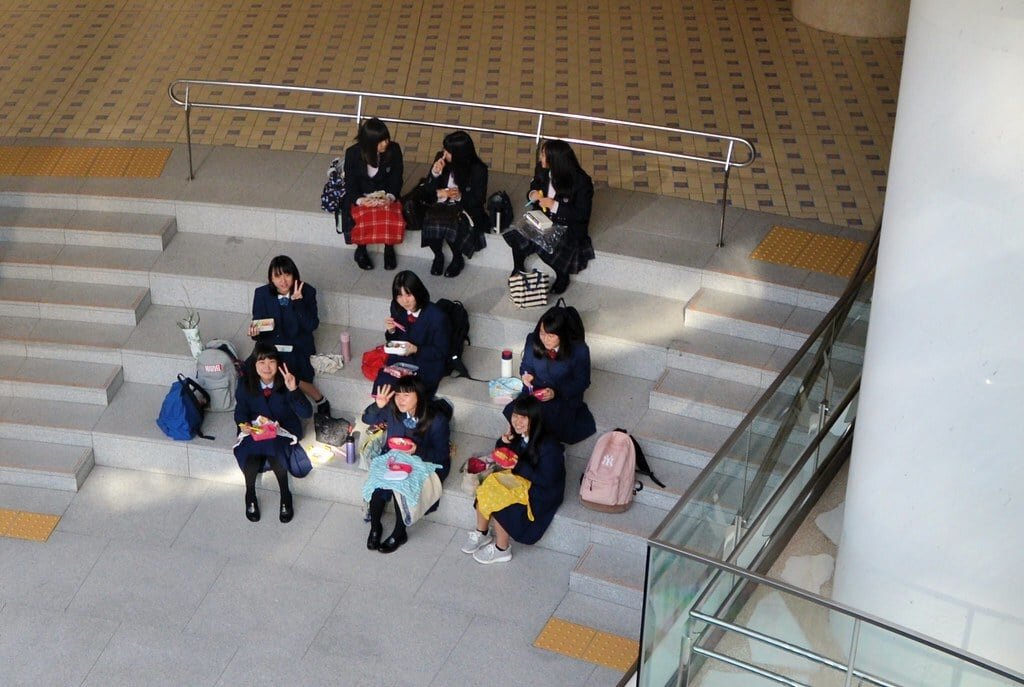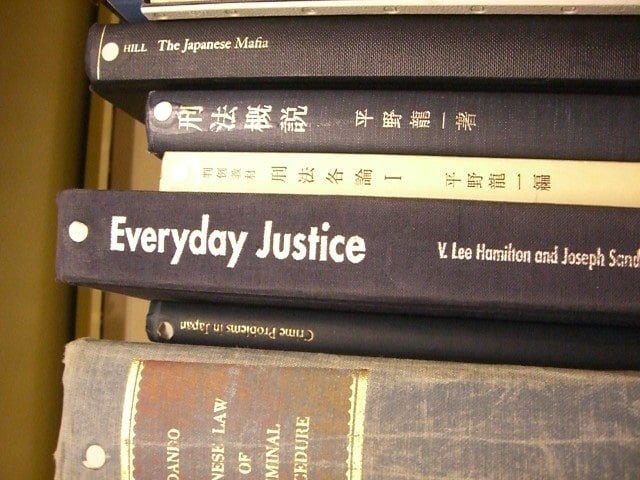
English Teachers work all over Japan. Also, the barriers to entry into this line of work are, for the most part, relatively low. In principle, all you need is a university degree, and the ability to speak and communicate in native level English. becoming an English teacher in japan
However, in Osaka especially, there are a number of pitfalls that new entrants to the market need to understand. As someone who has more than 15 years of teaching experience, and has commentated on the English teaching industry in Asia for almost 10 years, I know a thing or two about how to source the right English teacher gig in Osaka.
Today, with this handy guide, you soon will too.
What Qualifications Do you Need to be an English Teacher in Osaka?

The actual entry level qualifications for an English teacher position will vary quite a bit, depending on the type of institution and the level of teaching position you are applying for.
However, to qualify for the working visa necessary to be an English teacher in Osaka, you need to meet some basic criteria.
Firstly, you need to be educated to degree level or an acceptable equivalent. Usually, this means completing at least a Bachelor’s degree in any subject from a recognized university. You will also need to be able to prove that you have completed at least 12 years of school education in an English speaking environment.
This is how Japanese immigration authorities determine whether or not you qualify as a native speaker. These are criteria set out in law by the immigration authorities, not the hiring companies themselves. So they aren’t typically something you can talk your way around.
That being said, if you have a teaching license or other valid teaching credentials in your home country then authorities may waive some of these requirements. In the first instance, your best bet is to consult with the Japanese consulate in your home country. They will know whether you fit the criteria for a visa to be an English teacher in Japan.
If you’re fortunate enough to marry a Japanese national then none of the above applies. You can work on a spousal visa.
Getting Hired

When it comes to finding a job in Osaka, where you are applying from is crucial. About 80% of advertised jobs in the English teacher sector only hire candidates already in Japan. Of this 80%, probably less than half of them would seriously consider your application if you don’t live in the Kansai area. So, being here already, with a visa, will give you a huge advantage.
However, there are still some companies who willingly hire from overseas, but it is very competitive. Let’s look at these English teacher opportunities in more detail:
Applying from Outside Japan
Your two best bets for finding work as an English teacher in Osaka from outside Japan are English Conversation Schools (known colloquially as Eikaiwa), or Assistant Language Teacher (ALT) dispatch companies. We’ll look at these two roles in more detail a little later.
Some good sites to check for these types of jobs are ohayosensei.com , jobsinjapan.com and eslcafe.com
Both Eikaiwa and ALT entry level jobs don’t offer a great salary initially. However, unlike some other countries, in Japan your visa is secured on you, not your employer. You can quit your job, and provided you find another one before your visa expires, you won’t have any problems.
As an ethical professional, I am not encouraging anyone to simply take the first job they are offered. However, doing so allows you to enter Japan and then start looking for a better job immediately after you arrive. If you are ok with such actions, there’s nothing to legally stop you from doing this.
Less ethical companies will tell you that you forfeit your visa if you quit, but this is untrue. It is very important to do your homework before you come to Japan. You need to know just what exactly your legal rights and responsibilities as an employee are. We will look a little deeper into employee rights later on.
Applying from Within Japan
If you’re already here, and have a visa secured, then you have a big advantage over much of the competition. In addition to the sites stated above, where some job ads will specify “applicant must already reside in Japan”, you can also look for English teaching jobs at local job centers, and through word of mouth.
Some of the best jobs aren’t advertised directly, instead teachers who are leaving a job will look to bring in a suitable replacement. Building a good network of contacts during your first few months in Japan is absolutely vital in this regard. So, it is very important when applying for English teacher jobs, either online or by mail, that you state clearly the type of visa you are on, the length of the visa and the expiry date. If it comes down to a choice between two similarly matched candidates, the employer will, almost always, go with the candidate with the less complicated visa situation.
Also, it will really help you if you can acquire, at least, basic Japanese ability. My current employer, a municipal board of education, pays about 40% more than other typical teaching jobs of this type. However, to even be considered for the position, I had to do an interview in Japanese.
Also, be sure to take some quality passport photos of yourself in business attire. It may seem weird to some, but it is standard practice in most Japanese workplaces to attach a photo to your resume when you apply for a job.
With all that out of the way, let’s now look at the types of English teacher jobs available and some of the pros and cons of each type.
Eikaiwa Teaching

Eikaiwa is probably the most commonly advertised and the easiest job to land for new arrivals in Japan. It is also however, in my opinion, the most potentially problematic. A typical Eikaiwa job from a reputable company should pay no less than 250,000 yen per month. If you’re working in or near Osaka, or indeed any other major urban center then this should probably rise to around 280,000 per month for an entry level role.
At an Eikaiwa, you can usually expect to teach a mix of kids and adults classes. The exact breakdown between the two will vary drastically from place to place. Typically, your working day will start at around 12 midday or 1pm on weekdays and see you working through until around 8 or 9pm in the evening. You won’t be teaching classes the whole time. At Eikaiwa, a new English teacher should, generally speaking, expect to teach around five or six hours per day.
Negatives of Eikaiwa Teaching
One of the downsides of Eikaiwa teaching is that you will, in all likelihood, have to work weekends. If you’re lucky it will be either Saturday or Sunday, but some schools insist on teachers working both. You will have two days off per week, but especially in your first year, these are unlikely to be consecutive. The anti-social hours are one of the reasons why Eikaiwas tend to have a high turnover of staff.
Another is the way in which salary is calculated. This is where new English teachers especially have to be very careful. Always read the small print, as they say. Whilst most workers in Japan have a fixed monthly salary, in the Eikaiwa industry there has been a recent shift towards a pay per hour, or in some case pay per class model. Companies sell this to teachers on the basis that, if you keep a full teaching load, you can make far more than you would on a base salary.
However, for 95% of English teachers, this is impossible, and the companies know this. We do not have control over who we teach or how our lessons are scheduled. Also, this incentive system does not account for teachers using their annual leave or for public holidays in Japan. I strongly encourage anyone new to Japan not to sign up to any job where the salary is not a fixed, guaranteed monthly amount.
Assistant Language Teacher Positions

Another fairly common job for new English teachers in and around Osaka is that of the ALT. Unlike Eikaiwa teachers, ALTs do not work at private schools. Instead, they are dispatched to public schools, under the auspices of local boards of education. The workload of an ALT is generally easier as well. In most cases the maximum you will teach is 5 classes per day, though usually it is more like 3 or 4. The working hours for ALTs are better too. Typically, you’ll work from around 8am to 4:30pm Monday to Friday. From time to time, you may be asked to work on a weekend for an event such as the school sports day or culture festival. However, in these instances, you will be granted a day off the following week as compensation, usually the following Monday.
Downsides to ALT Teaching
Starting salaries for ALTs tend to be a little bit lower than Eikaiwa, at around 230-240,000 yen per month. Also, there are two categories of ALT in Japan. The category you fall into will have a big effect on your salary and other benefits.
The two categories in question are direct hire and dispatch ALTs.
As a direct hire ALT, I am employed directly by my local board of education. My boss is at city hall. However, in the case of dispatch, ALTs are hired by an English teacher recruiting firm, and then dispatched to a board of education to be deployed as they see fit. Your boss is the dispatch company, not the BOE.
As a consequence of this, dispatch ALTs tend to earn about 30-40% less than direct hire ALTs, despite doing the same job. That portion of your salary is taken by the dispatch company as their “cut”.
Another downside to ALT work is the fact that you will often need to teach at 4 or 5 different locations in a week. However, this can also be true of Eikaiwa jobs, especially in the larger cities like Osaka.
Salary Problems
Perhaps the biggest problem facing ALTs, dispatch ALTs in particular, is inconsistent salary. Despite the fact that, in most cases, dispatch companies charge the Board of Education the exact same fee for your services 12 months of the year, they will often cut your salary for the periods when you don’t have classes scheduled. They sell this to teachers as “an opportunity to travel around Japan” but the reality is they are stealing a portion of your annual salary by forcing you to take unpaid leave in August, December and March. Not all dispatch companies do this, thankfully.
For newcomers, it is near impossible to land a direct hire ALT job right from the start, as most direct hire positions require both Japanese ability and at least 6 months of residence in Japan. However, as I said earlier, there’s nothing to stop you changing your job once you are here. As soon as you are in Japan and set up in a dispatch ALT job, I encourage you to immediately start looking for direct hire positions in your area.
Laws and Regulations

Unfortunately, given that most of the victims in this regard are foreign, the Japanese government takes a rather stand-offish approach to regulating the English teaching industry. As such, rogue operators are rife. Whilst I personally believe that the majority of school owners and company leaders are good people just trying to make a living, there are a number of unscrupulous operators who ruin it for everyone else.
So, it is crucial that you, as a new English teacher, are aware of your rights and responsibilities. Many of these companies will push the law to its absolute limit without actually breaking it. So, it’s important to know where you stand legally.
Here are a few common questions, I am often asked by new teachers looking for work in Osaka:
How many holidays am I entitled to?
The legal minimum in Japan for employees on a contract of one year or more is 10 days of annual leave per year. For each year that an employee renews their contract, one day should be added, up to a maximum of 20 days per year. So, in year two the minimum goes up to 12 days, 13 in year 3 and so on. Your employer may, by prior written agreement, designate when up to half of these days may be taken, however you should always retain at least 5 days per year to be taken at your discretion. If you are an annually contracted employee and your annual leave is any less than that stated above, your employer is breaking the law.
How many sick days per year do Japanese workers get?
Unfortunately, if we’re talking about a legal mandate, the answer is zero. I am fortunate enough to have ten days of sick leave per year written into my contract, but that is at my employer’s discretion. There is no law in Japan compelling employers to give their staff annual sick leave provision. However, I personally think a company’s attitude to sick leave says a lot about its management. I will always look more favorably on a company that prioritizes the health of its workers.
I want to quit my job, but the contract says I have to give three months’ notice. What should I do?
In this case, you can ignore the contract, as it has no legal basis. Apart from a few very specific exceptions, none of which concern English teachers, the legally required notice period for changing your job in Japan is 2 weeks. Now, it’s considered polite to try and give your employer one month of notice, however, I say politeness works two ways. If your company have treated you well, and you want to leave them on good terms, then working one month’s notice is fine and reasonable. If they’re being obstructive or abusive however, then you owe them no more than 2 weeks. That’s a personal call you’ll have to make yourself.
I have a dispute with my employer (unpaid wages, holidays, etc.) what should I do?
In the first instance, try to talk things out reasonably with your employer. If that doesn’t work, then you have a couple of options. Your local ward office or city hall will probably have some kind of consultancy service for foreigners. They should be able to put you in touch with the local labor standards bureau who can mediate such disputes.
However, if more direct action is necessary, then consulting with a workers organization such as the General Union, could also be a way to go. As a general rule though, you shouldn’t wait until you have a problem before seeking union membership. The whole point of union membership is to support those who have problems now, in case you have one later.
Do Japanese companies provide healthcare coverage?
The issue of healthcare provision in Japan is a little complicated. Unlike the US, health insurance isn’t ordinarily offered as part of an employment package. Instead, workers are expected to sign up to Japan’s national healthcare provision system. You will pay a premium, deducted directly from your salary each month. Your employer should pay 50% of this, and you pay the other 50%. This premium covers you for 70% of any medical costs you incur, including medication. You need to pay the remaining 30% yourself. Note that some less reputable companies will try to weasel their way out of meeting this obligation. Always check that your employer is prepared to pay 50% of your healthcare premiums before signing a contract, otherwise, you could be left liable for the full amount. becoming an English teacher in japan
Some Final Thoughts

For all the challenges that teaching English in Osaka presents, the rewards make it more than worthwhile. Osaka is a truly wonderful city to live in. The salary you earn from even an entry level teaching job is more than enough to live comfortably, provided you are sensible with your spending. becoming an English teacher in japan
Also, whilst it pays to be cautious, try to avoid being too cynical about the business side of things. Most schools are perfectly fine and as long as you do your job, you won’t have any issues. becoming an English teacher in japan
The foreign community in Osaka really looks out for one another. Once you’ve made a few friends you’ll soon come to realize who the good employers are and who is best avoided. becoming an English teacher in japan
My time in Osaka represents some of the best times of my life. I’m sure if you make the choice to work there for a time, in the end you will say the same. Good luck, and happy job hunting! becoming an English teacher in japan
























